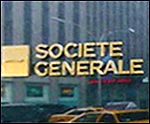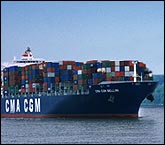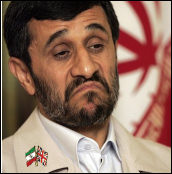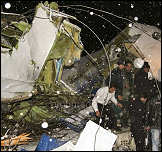 When I earlier reported on the latest round of Syria sanctions, which now prohibit exportation of services to Syria, I noted that the executive order did not contain typical exceptions for services that are generally permitted in the case of sanctioned countries, such as limited legal services and, lately, certain Internet-related services. And because the restriction on export of services to Syria was new, the Syria sanctions regulations of the Office of Foreign Assets Control (“OFAC”) did not contain those exceptions either. So, for example, providing a Twitter account to a Syrian or allowing a Syrian to post a YouTube video would violate the executive order.
When I earlier reported on the latest round of Syria sanctions, which now prohibit exportation of services to Syria, I noted that the executive order did not contain typical exceptions for services that are generally permitted in the case of sanctioned countries, such as limited legal services and, lately, certain Internet-related services. And because the restriction on export of services to Syria was new, the Syria sanctions regulations of the Office of Foreign Assets Control (“OFAC”) did not contain those exceptions either. So, for example, providing a Twitter account to a Syrian or allowing a Syrian to post a YouTube video would violate the executive order.
OFAC responded quickly and released several general licenses, dated August 18, 2011, which cover some of the usual exceptions. General License No. 1 covers the provision of goods and services to the diplomatic missions of Syria and their employees in the United States subject to certain restrictions.
General License No. 2 covers the provision of legal services and parallels the provisions normally included in other sanctions regulations. That general license permits, for example, representing the government of Syria or other Syrian persons named as defendants in U.S. legal actions and providing advice to the Syrian government or other Syrian persons on compliance with U.S. laws. The new general license would not, however, cover providing legal services to a French company with respect to business it is conducting in Syria.
General License No. 4 permits exportation of services normally incident to exportation or re-exportation of goods to Syria that have been licensed by the Department of Commerce’s Bureau of Industry and Security.
Finally, General License No. 5 permits the provision of services incident to the exchange of personal communications over the Internet. This would include services relating to instant messages, email, social networking, video and picture sharing and blogging, provided the services are provided without charge and are not provided to the Government of Syria or other blocked persons.

 Posted by
Posted by  Category:
Category: 

 “Société Générale New York (“SGNY”) recently
“Société Générale New York (“SGNY”) recently 
 This
This  Nothing much of interest at the Sanctions breakout yesterday during the 2011 Update conference held by the Bureau of Industry and Security. The panel members included two people from the Office of Foreign Assets Control (“OFAC”) who went over some aspects of the new Libya sanctions and who conceded, during the Q&A session, that all the work on these new sanctions had slowed down their processing of licenses to Iran for food, medicine and medical devices. (Those exports are permitted under the
Nothing much of interest at the Sanctions breakout yesterday during the 2011 Update conference held by the Bureau of Industry and Security. The panel members included two people from the Office of Foreign Assets Control (“OFAC”) who went over some aspects of the new Libya sanctions and who conceded, during the Q&A session, that all the work on these new sanctions had slowed down their processing of licenses to Iran for food, medicine and medical devices. (Those exports are permitted under the 

